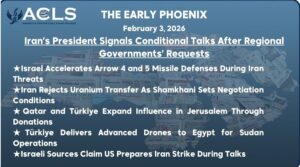
★ SUDAN
-
Sudan Partitioned: RSF Advance, Mass Killings, U.S. Pushes Truce
On October 26, 2025, the Rapid Support Forces (RSF) seized El Fasher, the last major city in Darfur held by the Sudanese Armed Forces (SAF), completing their control over the region and effectively partitioning Sudan. The fall followed an 18-month siege that triggered drastic humanitarian consequences: over 2,500 civilians are believed to have been executed or murdered in mass atrocities, with satellite imagery confirming mass graves and widespread deaths. Videos analyzed by experts show RSF fighters celebrating over bodies and committing summary executions, particularly targeting civilians. Over 62,000 fled the region on foot, while medical facilities were destroyed and 460 killed at one hospital. The RSF blocked escapes, committed sexual violence, pillaged, and cut off humanitarian aid, prompting UN and advocacy warnings of ethnic cleansing. SAF now holds the Nile and Red Sea corridors as RSF entrenches in Darfur/Kordofan. Yale satellite data confirms massacres; Sudanese Doctors Network reports bombings of hospitals, notably the Karnoi children’s hospital drone strike.
As of November 4, 2025, several Arabic and international media outlets highlight Massad Boulus’s central role as President Trump’s senior adviser in formulating and advancing a U.S.-led roadmap for a three-month humanitarian truce in Sudan. Reports confirm that both the Sudanese Armed Forces and Rapid Support Forces have agreed in principle to the U.S. initiative, and negotiations are now focused on technical implementation. The truce proposal, shaped in partnership with Egypt, Saudi Arabia, and the UAE under the “Quad,” is designed to deliver emergency aid across Sudan as a step toward a permanent ceasefire and a nine-month transition to civilian rule. Boulus has made public statements outlining the plan’s details and the lack of initial objections from either party, with finalization expected soon.
=============
★ ISRAEL
-
US Intelligence Chief Makes Surprise Visit to Gaza Coordination Center
U.S. National Intelligence Director Tulsi Gabbard visited the U.S.-run Civil-Military Coordination Center (CMCC) to support implementing the second phase of the Gaza ceasefire agreement. Gabbard highlighted multinational coordination, intelligence sharing, and humanitarian support as key to lasting peace, noting participation of 16 countries and 20 NGOs, with U.S. forces leading outside Gaza and Arab forces managing stability inside the sector.
-
Hamas Proposes Handing Heavy Weapons to Egypt
An Arab source involved in mediation talks told i24NEWS that Hamas has offered Egypt a deal to transfer its heavy weapons, pledge not to smuggle arms, dig tunnels, or undertake military-strengthening activities. Egypt, the Palestinian Authority, and Hamas will soon select 15 members from a 40-candidate list for Gaza’s administrative committee, with Egypt having the final decision.
-
Israel Signs Gas Deal with Cyprus, Potentially Powering Europe
Energean, managing Israel’s Karish, Tanin, and Katlan gas fields, signed an MoU with the Cypriot group Cyfield to supply gas to a planned Mari power plant via a proposed underwater pipeline. Pending Israeli and Cypriot approvals, Cyprus would become the first European importer of Israeli gas, strengthening regional energy cooperation with Greece and enhancing Israel’s diplomatic and economic influence.
=========
★IRAN
-
Belarus and Iran Deepen Strategic Air Force Cooperation
Belarus and Iran agreed to expand cooperation between their air forces during an Iranian military visit to Minsk from November 2–5. The visit included talks between the air force commanders and affirmed both presidents’ commitment to strengthening strategic ties. The Iranian delegation will tour Belarus’s military academy and electronic warfare units to review advanced equipment.
-
Russian Arms Flights to Iran Spark Fears of Advanced Transfers
A series of unannounced Russian military cargo flights between Moscow and Tehran, involving An-124 and Il-76 aircraft, has sparked suspicions of advanced arms transfers, including S-400 air defense systems and Su-35 fighter jets, during rising Middle East tensions, signaling deeper military cooperation that could trigger new U.S. sanctions on Iran.
============
★IRAQ
-
Iraq Boosts Air Arsenal with Drones from South Africa and Pakistan
Iraq has signed a deal with South Africa to acquire Milkor 380 drones and is finalizing talks with Pakistan to purchase Shahpar II UAVs, Defense Minister Thabet Al-Abbasi announced. The move marks a strategic shift toward network-centric warfare, diversifying Iraq’s defense sources and enhancing surveillance and precision-strike capabilities for border security and counterterrorism operations.
=========
★YEMEN
-
Houthi Networks Expand Regional Ties, Arms, and Militancy
A UN expert report revealed unprecedented escalation in cooperation between Iran-backed Houthis and Hamas, Hezbollah, Somali al-Shabaab, and al-Qaeda in the Arabian Peninsula, encompassing military coordination, political alignment, weapons trafficking, and fighter training. The Houthis have become part of the regional “Resistance Axis,” expanding influence across Yemen and the Horn of Africa despite international containment efforts.
=============
★TURKIYE
-
Türkiye, Muslim Allies Call for Palestinian-Led Governance in Gaza
Türkiye and six Muslim allies, including Saudi Arabia, Qatar, and the UAE, urged Palestinian self-rule in Gaza after Istanbul talks, stressing no foreign hegemony should dominate the Strip. Turkish FM Hakan Fidan said Hamas is ready to transfer authority to a Palestinian committee, while an International Stabilization Force under a UN mandate is planned, though Israel opposes Türkiye’s involvement.
==============
★THE GULF
-
Qatar and the US Open Joint Air Defense Command Center
Qatar and the United States inaugurated a Joint Air Defense Command Center (CCP) at Al Udeid Air Base in Doha, led by Qatar’s Chief of Staff Lt. Gen. (Pilot) Jassim bin Mohammed Al Mannai and US CENTCOM Commander Gen. Charles Bradford Cooper. The move strengthens Qatar’s air defense, command, and control capabilities following expanded US security guarantees issued in October.
==============
★ Disclaimer: This publication is a digest of various news sources compiled by the Early Phoenix team and edited by Rania Kisar. The items are curated, concise summaries of news items hyperlinked within each story. The items and summaries presented do not necessarily represent the views of the American Center for Levant Studies.



